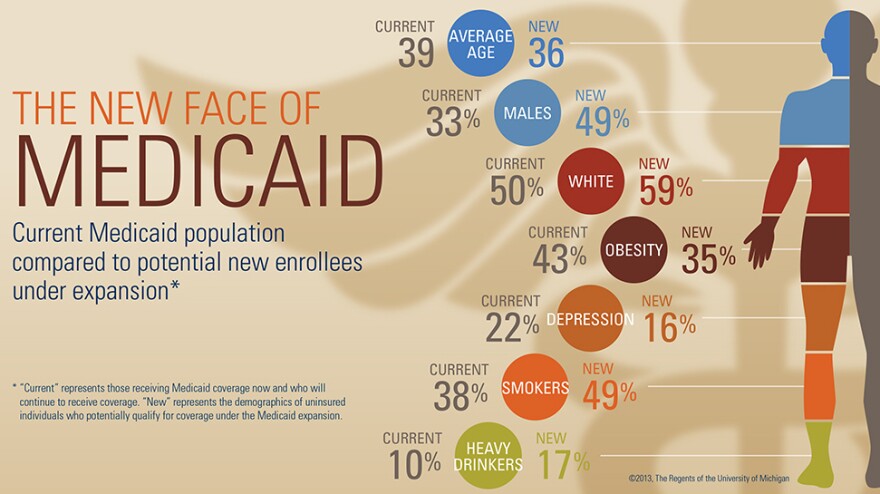Starting in January, it will get a lot easier for millions of people across to the country to qualify for Medicaid.
Adults making up to 138 percent of the federal poverty level ($15,856 in 2013) will be able to sign up for Medicaid, under an expansion paid for entirely by the federal government between 2014 and 2017.
The catch is that states, which share in the expense of regular Medicaid, will have to pay up to 10 percent of the expansion tab later. The governments in some states don't want to do that. Only half the states have agreed to go ahead with the easier path to coverage made possible by the Affordable Care Act.
So how will the expansion change who signs up for Medicaid coverage? Some researchers at the University of Michigan Health System took a look by analyzing data from the National Health and Nutrition Examination Survey.
"Demographically, the new enrollee population will have a higher proportion of whites, and a higher proportion of males," Dr. Tammy Chang, lead author of the study, tells Shots. The new enrollees are likely to be younger, too. (See the chart for a fuller breakdown.)
Overall, she says the new Medicaid enrollees will be healthier and fewer of them will be obese. They're also less likely to be depressed. But more of them will be smokers and drinkers. That's an opportunity for intervention. "We can really focus on them as physicians for prevention and improving their health behaviors," she says.
The findings were published in the Annals of Family Medicine.
Copyright 2021 NPR. To see more, visit https://www.npr.org.






